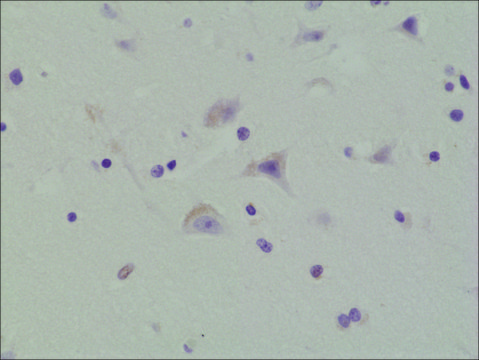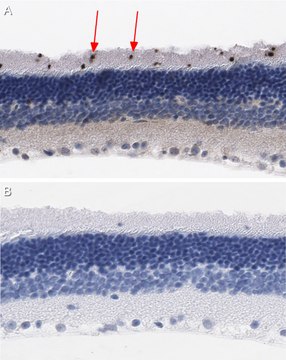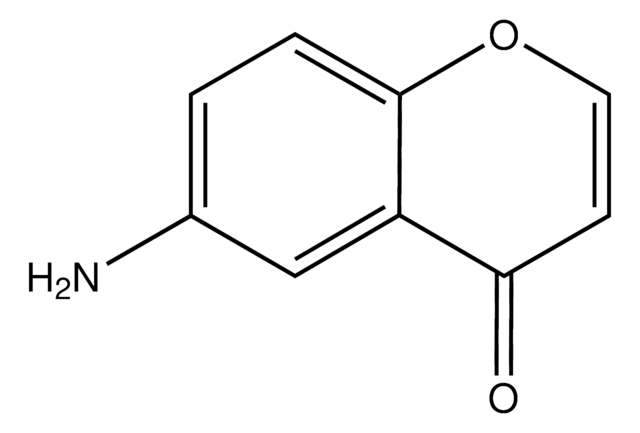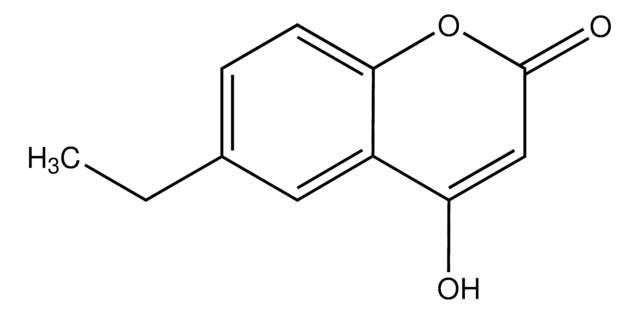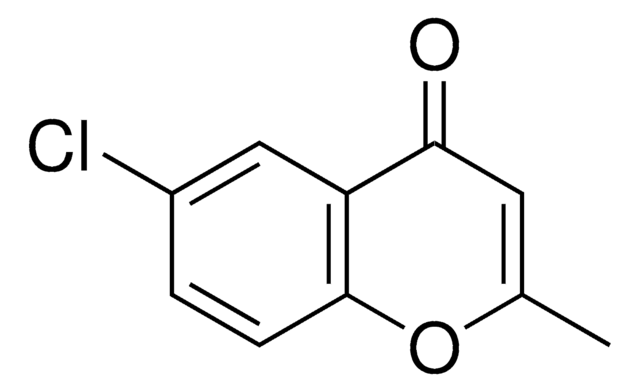CDS019990
6-Amino-chromen-2-one
AldrichCPR
Sign Into View Organizational & Contract Pricing
Select a Size
150 μL
RM 2,216.00
RM 2,216.00
Check Cart for Availability
A recombinant, preservative-free antibody is available for your target. Try ZRB04823
Request a Bulk Order
Select a Size
Change View
150 μL
RM 2,216.00
About This Item
Empirical Formula (Hill Notation):
C9H7NO2
Molecular Weight:
161.16
MDL number:
UNSPSC Code:
12352200
PubChem Substance ID:
RM 2,216.00
Check Cart for Availability
A recombinant, preservative-free antibody is available for your target. Try ZRB04823
Request a Bulk Order
Recommended Products
form
solid
SMILES string
Nc1ccc2OC(=O)C=Cc2c1
InChI
1S/C9H7NO2/c10-7-2-3-8-6(5-7)1-4-9(11)12-8/h1-5H,10H2
InChI key
ZOJAINJCZSVZGW-UHFFFAOYSA-N
1 of 4
This Item | JRD0738 | JRD1108 | JRD1641 |
|---|---|---|---|
| form solid | form solid | form solid | form - |
Other Notes
Please note that Sigma-Aldrich provides this product to early discovery researchers as part of a collection of unique chemicals. Sigma-Aldrich does not collect analytical data for this product. Buyer assumes responsibility to confirm product identity and/or purity. All sales are final.
NOTWITHSTANDING ANY CONTRARY PROVISION CONTAINED IN SIGMA-ALDRICH′S STANDARD TERMS AND CONDITIONS OF SALE OR AN AGREEMENT BETWEEN SIGMA-ALDRICH AND BUYER, SIGMA-ALDRICH SELLS THIS PRODUCT "AS-IS" AND MAKES NO REPRESENTATION OR WARRANTY WHATSOEVER WITH RESPECT TO THIS PRODUCT, INCLUDING ANY (A) WARRANTY OF MERCHANTABILITY; (B) WARRANTY OF FITNESS FOR A PARTICULAR PURPOSE; OR (C) WARRANTY AGAINST INFRINGEMENT OF INTELLECTUAL PROPERTY RIGHTS OF A THIRD PARTY; WHETHER ARISING BY LAW, COURSE OF DEALING, COURSE OF PERFORMANCE, USAGE OF TRADE OR OTHERWISE.
NOTWITHSTANDING ANY CONTRARY PROVISION CONTAINED IN SIGMA-ALDRICH′S STANDARD TERMS AND CONDITIONS OF SALE OR AN AGREEMENT BETWEEN SIGMA-ALDRICH AND BUYER, SIGMA-ALDRICH SELLS THIS PRODUCT "AS-IS" AND MAKES NO REPRESENTATION OR WARRANTY WHATSOEVER WITH RESPECT TO THIS PRODUCT, INCLUDING ANY (A) WARRANTY OF MERCHANTABILITY; (B) WARRANTY OF FITNESS FOR A PARTICULAR PURPOSE; OR (C) WARRANTY AGAINST INFRINGEMENT OF INTELLECTUAL PROPERTY RIGHTS OF A THIRD PARTY; WHETHER ARISING BY LAW, COURSE OF DEALING, COURSE OF PERFORMANCE, USAGE OF TRADE OR OTHERWISE.
Choose from one of the most recent versions:
Certificates of Analysis (COA)
Lot/Batch Number
It looks like we've run into a problem, but you can still download Certificates of Analysis from our Documents section.
If you need assistance, please contact Customer Support
Already Own This Product?
Find documentation for the products that you have recently purchased in the Document Library.
Hey-Kyoung Lee et al.
Cell, 112(5), 631-643 (2003-03-12)
Plasticity of the nervous system is dependent on mechanisms that regulate the strength of synaptic transmission. Excitatory synapses in the brain undergo long-term potentiation (LTP) and long-term depression (LTD), cellular models of learning and memory. Protein phosphorylation is required for
Hey-Kyoung Lee et al.
Journal of neurophysiology, 103(1), 479-489 (2009-11-13)
Activity-dependent changes in excitatory synaptic transmission in the CNS have been shown to depend on the regulation of alpha-amino-3-hydroxy-5-methyl-4-isoxazole propionic acid receptors (AMPARs). In particular, several lines of evidence suggest that reversible phosphorylation of AMPAR subunit glutamate receptor 1 (GluR1
Hiago Murilo Melo et al.
Molecular neurobiology, 58(4), 1859-1870 (2021-01-07)
The central autonomic network, which is connected to the limbic system structures including the amygdala (AMY) and anterior hippocampus (aHIP), regulates the sympathetic and parasympathetic modulation of visceromotor, neuroendocrine, pain, and behavior manifestations during stress responses. Heart rate variability (HRV)
Xiang Cai et al.
Nature neuroscience, 16(4), 464-472 (2013-03-19)
The causes of major depression remain unknown. Antidepressants elevate concentrations of monoamines, particularly serotonin, but it remains uncertain which downstream events are critical to their therapeutic effects. We found that endogenous serotonin selectively potentiated excitatory synapses formed by the temporoammonic
Loukia Parisiadou et al.
Nature neuroscience, 17(3), 367-376 (2014-01-28)
Leucine-rich repeat kinase 2 (LRRK2) is enriched in the striatal projection neurons (SPNs). We found that LRRK2 negatively regulates protein kinase A (PKA) activity in the SPNs during synaptogenesis and in response to dopamine receptor Drd1 activation. LRRK2 interacted with
Our team of scientists has experience in all areas of research including Life Science, Material Science, Chemical Synthesis, Chromatography, Analytical and many others.
Contact Technical Service

